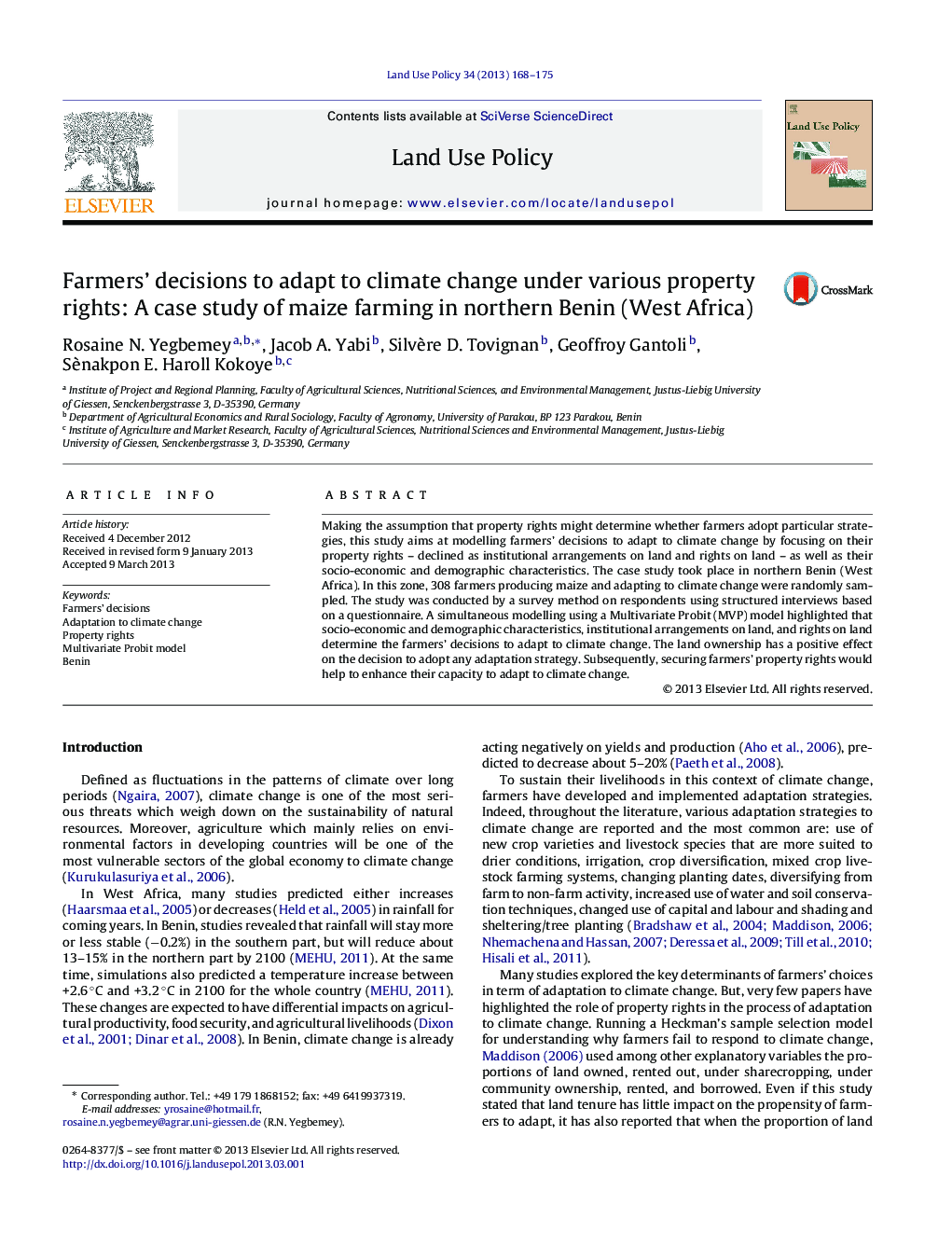| Article ID | Journal | Published Year | Pages | File Type |
|---|---|---|---|---|
| 93215 | Land Use Policy | 2013 | 8 Pages |
•We investigate the role of socio-economic and demographic characteristics, institutional arrangements and rights on land on farmers’ decision to adapt to climate change.•Experience in agriculture, contact with extension service and access to credit are socio-economic characteristics positively correlated with the famers’ decisions to adapt to climate change.•Inheritance and gifting are institutional arrangements on land that influence positively the farmers’ adaptation while renting and purchasing have mixed effects.•The land ownership is an incentive for farmers in term of land security, and has a positive effect on their decision to adapt to climate change.
Making the assumption that property rights might determine whether farmers adopt particular strategies, this study aims at modelling farmers’ decisions to adapt to climate change by focusing on their property rights – declined as institutional arrangements on land and rights on land – as well as their socio-economic and demographic characteristics. The case study took place in northern Benin (West Africa). In this zone, 308 farmers producing maize and adapting to climate change were randomly sampled. The study was conducted by a survey method on respondents using structured interviews based on a questionnaire. A simultaneous modelling using a Multivariate Probit (MVP) model highlighted that socio-economic and demographic characteristics, institutional arrangements on land, and rights on land determine the farmers’ decisions to adapt to climate change. The land ownership has a positive effect on the decision to adopt any adaptation strategy. Subsequently, securing farmers’ property rights would help to enhance their capacity to adapt to climate change.
Graphical abstractFigure optionsDownload full-size imageDownload as PowerPoint slide
